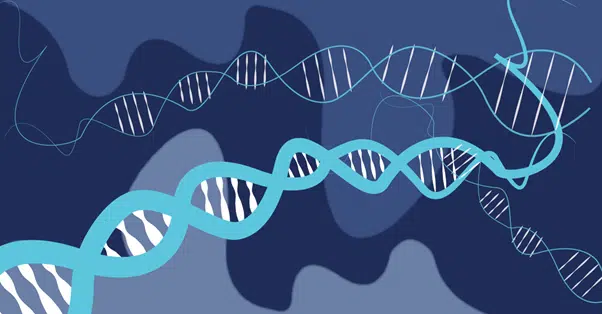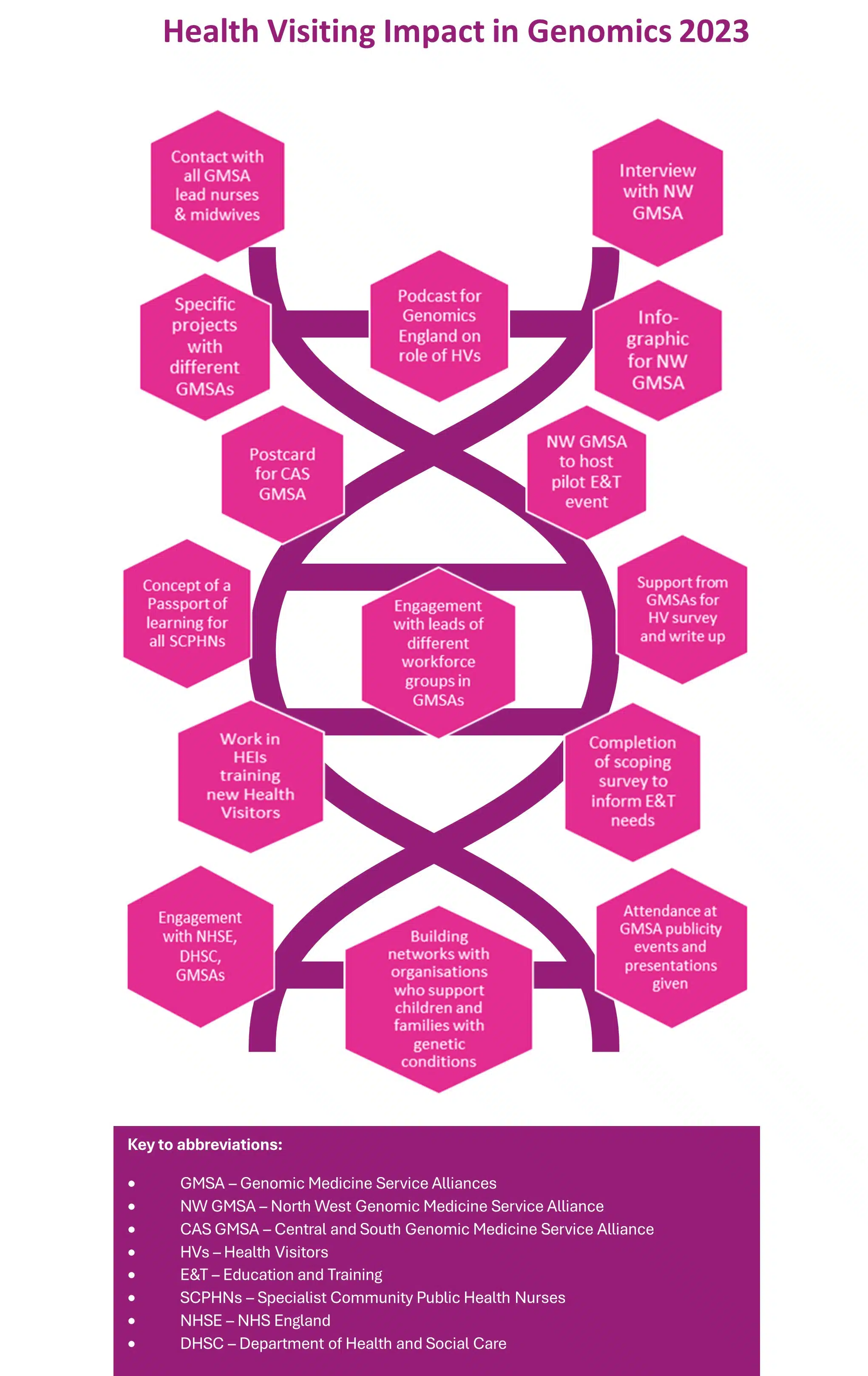What do we mean when we say genomics?
Every person has a genome. It is all their genetic information, whereas genes are just part of that genetic information. Most human cells have a copy of a person’s genome. The exception is red blood cells, which do not because they do not have a nucleus or mitochondria and these are where the genome is found.
Due to advances in science, we can sequence or read someone’s genome easily and quickly. We know that this can help in many healthcare situations such as diagnosis and personalised medicine, and prevention through offering more screening opportunities and research.
Why is genomics relevant to health visiting?
Genomics is part of a lot of NHS care, and this may affect us personally. We may also see children and families on our caseload where genomic tests are being conducted to investigate a possible genetic condition. We may also soon have babies on our caseloads who are part of a large scale research study being run by Genomics England and the NHS which will sequence 100,000 babies’ genomes to look for 200+ rare genetic conditions that, if a baby has, the sooner we know about it, the better their outcomes will be.
What is the iHV current project in genomics all about?
Our project is in collaboration with Genomics Education Programme (GEP) and has the following aims over the next 24 months:
- Scope the current learning requirements in health visiting across England in Genomics, to inform an education and training plan. Deliver education and training to meet current learning requirements of health visitors, to embed genomics in day-to-day practice and evaluate this.
- Work closely with GEP and stakeholders such as the Genomic Medicine Service Alliances (GMSAs), to integrate health visitors into the national and local genomics structures, and develop their role within each GMSA.
- Undertake a strategic role in considering genomic services for children to span their childhood.
- Explore and implement innovative ways of learning by using current frameworks, such as the GEP Clinical Pathway Initiative (CPI), and considering other ways of learning to address any gaps.
How can I get involved or keep up-to-date with this project?
We hope to keep you posted about this work and we may approach you to share your learning requirements in genomics so that we can further develop education and training that is relevant and helpful for you. We will be considering the best way to support you in your practice, so look out for news about this in our newsletters.



